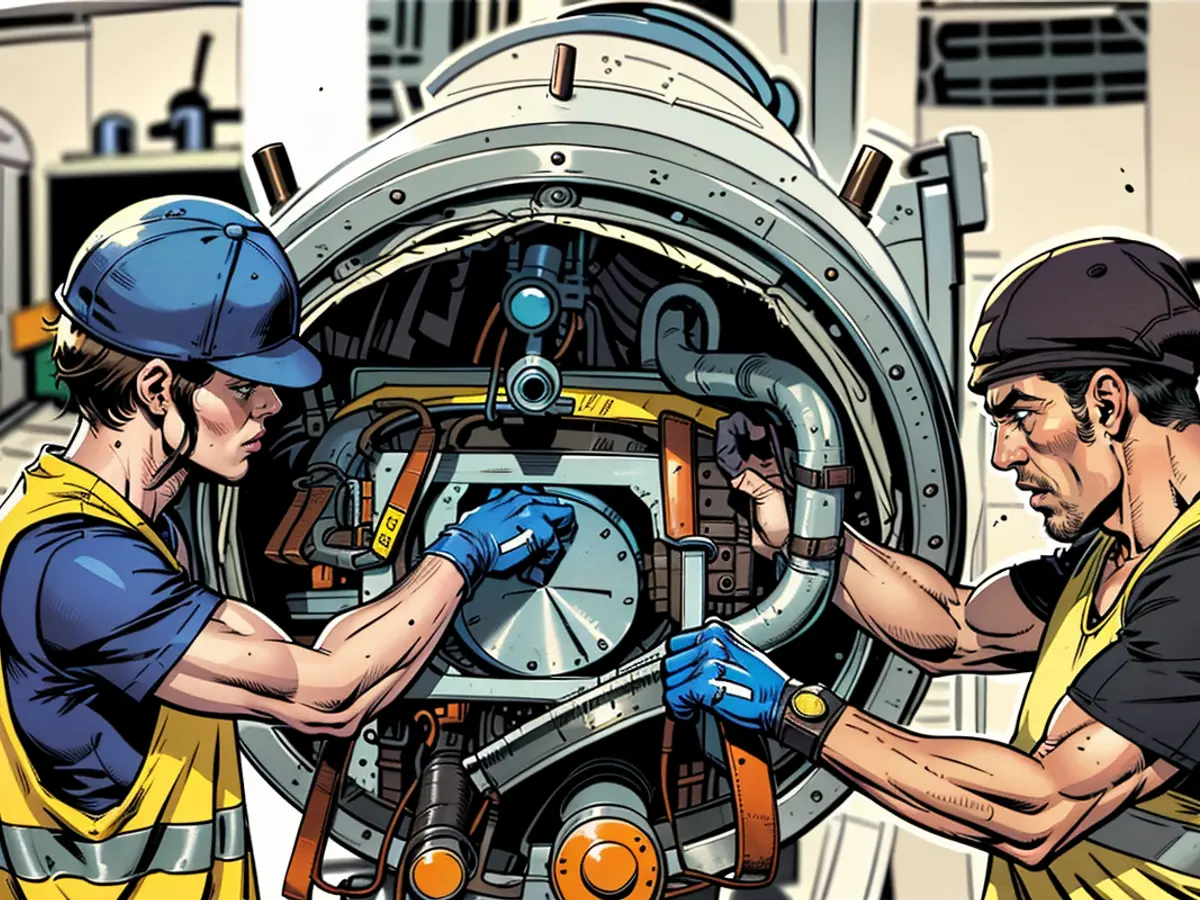- First concrete, now technology - next step in accelerators
In a tunnel-like structure, 6.5 meters wide, particles will soon race through a mere 10-centimeter tube, invisible to the naked eye, almost at the speed of light, as envisioned by scientists. The new particle accelerator, "FAIR" (Facility for Antiproton and Ion Research), is being built at one of the world's largest research sites in Darmstadt. After years of construction, technicians from around the world have begun installing the actual equipment between concrete walls up to a meter thick.
Tons-heavy magnets are being lowered into the depths
After the completion of the shell, the technical director of the GSI Helmholtzzentrum für Schwerionenforschung and "FAIR", Jörg Blaurock, said that the equipment, including a ring through which ions, electrically charged atoms, will later zoom at nearly 300,000 kilometers per second, will be gradually lowered, sometimes up to 20 meters deep. Hundreds of magnets will keep these particles on track and contribute to their acceleration. Before the particles reach the labs and research facilities, they will complete around twice the distance of Earth's circumference in the 1.1-kilometer-long ring, according to Blaurock.
Extension to existing facility
The new accelerator will help explore questions related to space travel and medicine. "We're exploring the universe in the lab," said Yvonne Leifels, head of research at GSI/"FAIR". It complements an existing, continually updated facility that has already been used to develop cancer therapies. Leifels mentioned exploring the origins of elements, neutron stars with particularly dense matter, the interiors of planets, and the effects of radiation in space in cooperation with the European Space Agency (ESA).
"FAIR" is an international collaboration
The first experiments are expected to begin here by the end of 2027, and the new 1.1-kilometer-long accelerator ring by the end of 2028, Blaurock said on the construction site. However, he noted that the concrete structure is already complete for the facility. "FAIR" is an international collaboration involving several countries, with Germany being the largest contributor and Russia the second-largest. Despite Russia's involvement in the war, Blaurock confirmed that it remains a member and continues to pay part of its contributions. The current budget is around 3.3 billion euros, up from the original 1.3 billion euros in 2005, due to factors such as the COVID-19 pandemic, construction material price increases, and supply chain issues.
More opportunities for science
In the future, more researchers will have the chance to conduct experiments with the particle accelerator. While around 1,000 scientists could perform experiments here annually in the past, this number is expected to increase to 3,000. A dedicated data center has been built to handle the vast amounts of data generated. Leifels is confident that once "FAIR" is completed, it will be one of the leading accelerators worldwide.
At the heart of the construction site, the technicians are carefully constructing a tracking system for the ions using hundreds of magnets. Despite the complexities and challenges, the construction site continues to be a bustling hub of international collaboration, with scientists and technicians from various countries working together to bring the FAIR project to fruition.







